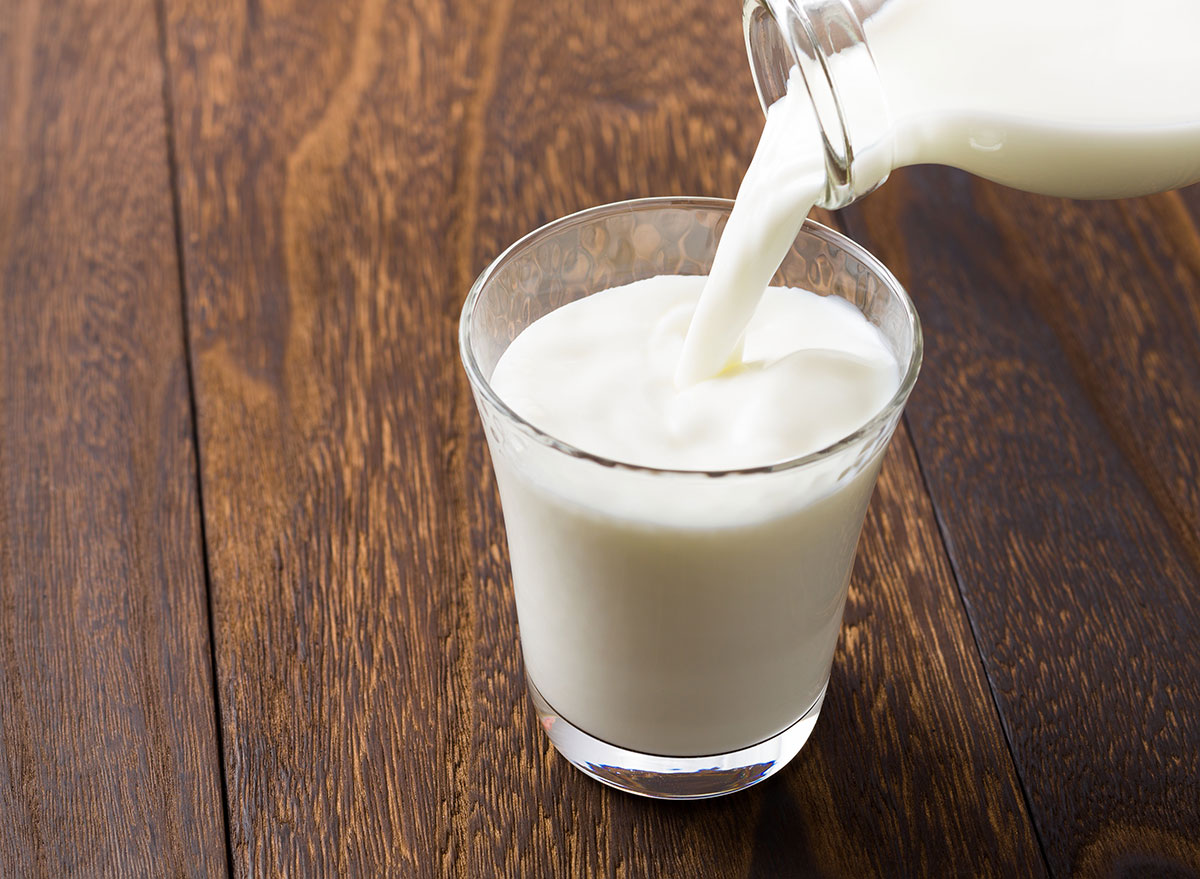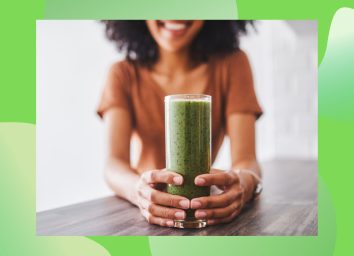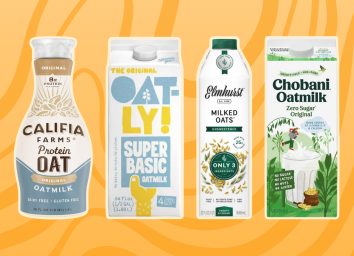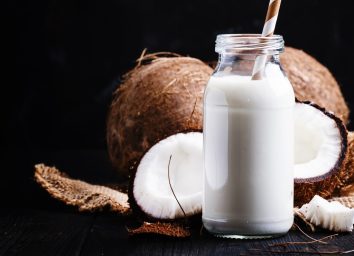What Happens to Your Body When You Drink Milk

We were told as children to drink milk for strong bones and good health (thanks, mom!), but is drinking milk really worth the hype? At this point, it's obviously well-known that milk is rich in calcium to help boost bone density and has protein, of course. But what actually happens after you drink a glass of milk? And what are the benefits, both short- and long-term? Is it even essential for adults?
We're here to answer those burning questions, once and for all. Here's what the experts have to say about what really happens to your body when you drink milk.
First things first—what actually happens in your stomach right after a glass of milk?
Once milk is in your body, it actually chills in your stomach for a bit as it prepares to be digested.
"After ingestion of cow's milk, it spends a little time in the stomach, where enzymes start to denature the proteins so that they may be digested (or broken apart for absorption) later," says Kelly Jones MS, RD, CSSD, LDN.
Depending on the fat content of the milk, the enzyme gastric lipase will start to break larger fat molecules into smaller components—specifically gastric lipase starts to break fatty acid chains off of triglycerides, Jones explains.
Eventually, it makes its way to your small intestine.
"Next, the cow's milk components move to the small intestine where enzymes complete protein digestion so that amino acids and polypeptides (which are smaller strands on amino acids) can be absorbed," she says. Other forms of lipase are there to complete the digestion of fats for absolute absorption, too.
It's also a whole lot easier of a process if you're not sensitive to cow's milk and dairy.
"If an adult does not deal with lactose intolerance, the small intestine will also have lactase, the enzyme that splits lactose into single sugar molecules that are able to be absorbed into the bloodstream," Jones says. Then, the blood can deliver the energy from carbohydrates and fat as well as the amino acids to cells for use later on, she adds.
It's trickier if you're drinking a glass of cow's milk and have an intolerance—so you'd want to go with an alternative milk if you have a sensitivity.
"However, those with lactose intolerance (2/3 to 3/4 of adults) do not produce sufficient lactase and are unable to break down lactose," Jones says. This means the milk can't be absorbed and used for energy, and so instead it passes to the lower digestive tract.
"Since it doesn't belong there, it causes symptoms such as gas, bloating, pain, and oftentimes diarrhea," she says. Not so great, of course!
Is cow's milk good for you, anyway?
There are benefits to drinking a glass of milk, no matter how old you are. Cow's milk is rich in protein and calcium as well as a variety of B-vitamins.
"Protein helps promote satiety in addition to helping maintain lean muscle mass and calcium plays a role in muscle contractions and blood pressure, in addition to bone health," Jones says. However, it's fine if you don't consume three servings of dairy per day, so long as you have a well-balanced diet—so don't stress if you go a day without eating cheese and drinking milk. Many plant-based foods also contain calcium, so you should be fine there.
There are some disadvantages, but that's really if you just can't tolerate dairy well.
"If you experience any level of lactose intolerance, you may be impacting absorption of other nutritional components of milk, including minerals like calcium," Jones says.
Additionally, regular intake and discomfort may disrupt your good gut bacteria, which are important for immune system function as well as energy metabolism and mental health, she adds.
Again, keep in mind you can find several alternatives and plant-based options instead, and they offer some great benefits of their own.
"Often non-dairy milk alternatives are not only easier on the digestive tract but fortified to provide higher amounts of calcium and vitamin D, as well as B-12," Jones says.
If you're looking to slim down, there's one drink you should be having more of, and that's tea. Learn how you can harness the power of tea to lose weight!
Should you drink milk every day?
It really depends on your tolerance to lactose, as well as whey protein, and if you drink milk regularly in the week versus starting to drink it each day when you're not used to it.
"If someone adds cows milk to their diet daily after not drinking it regularly for some time, they may be more likely to experience issues associated with lactose," she says. "Additionally if someone does not tolerate whey well, drinking more than an eight-ounce glass at a time may cause stomach discomfort too."
Yet, if you are not sensitive or have discomfort, you could drink a glass each day. And you might feel stronger, and fuller, due to the thicker consistency, and get more nutrients in the process as well.
"For those who are not intolerant to dairy, replacing a low protein non-dairy milk alternative such as almond milk with cows milk may result in increased feelings of fullness and better muscle repair for those who are physically active," she says.
The takeaway? You could drink milk each day, and it will benefit your body, but only if you tolerate it well and have ease with digestion. If you're in the clear, add it in as a healthy addition!








